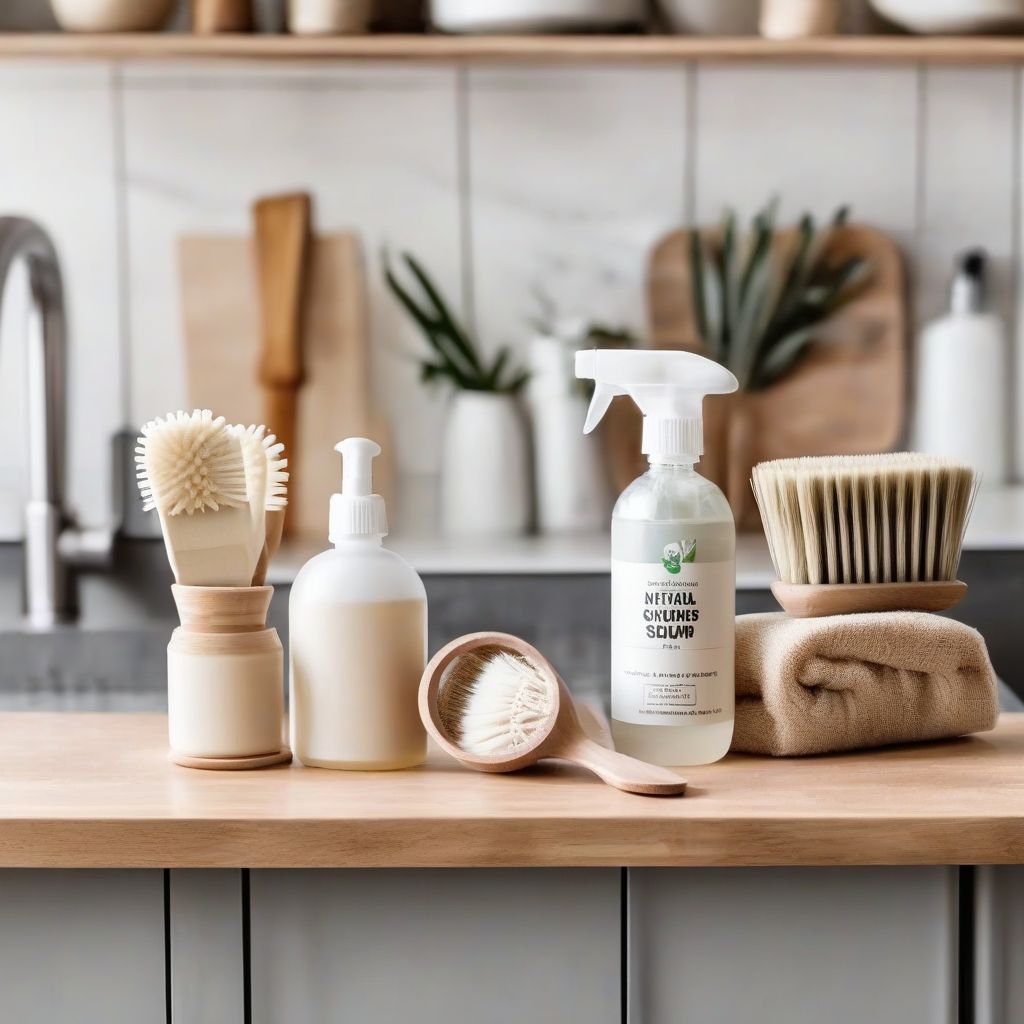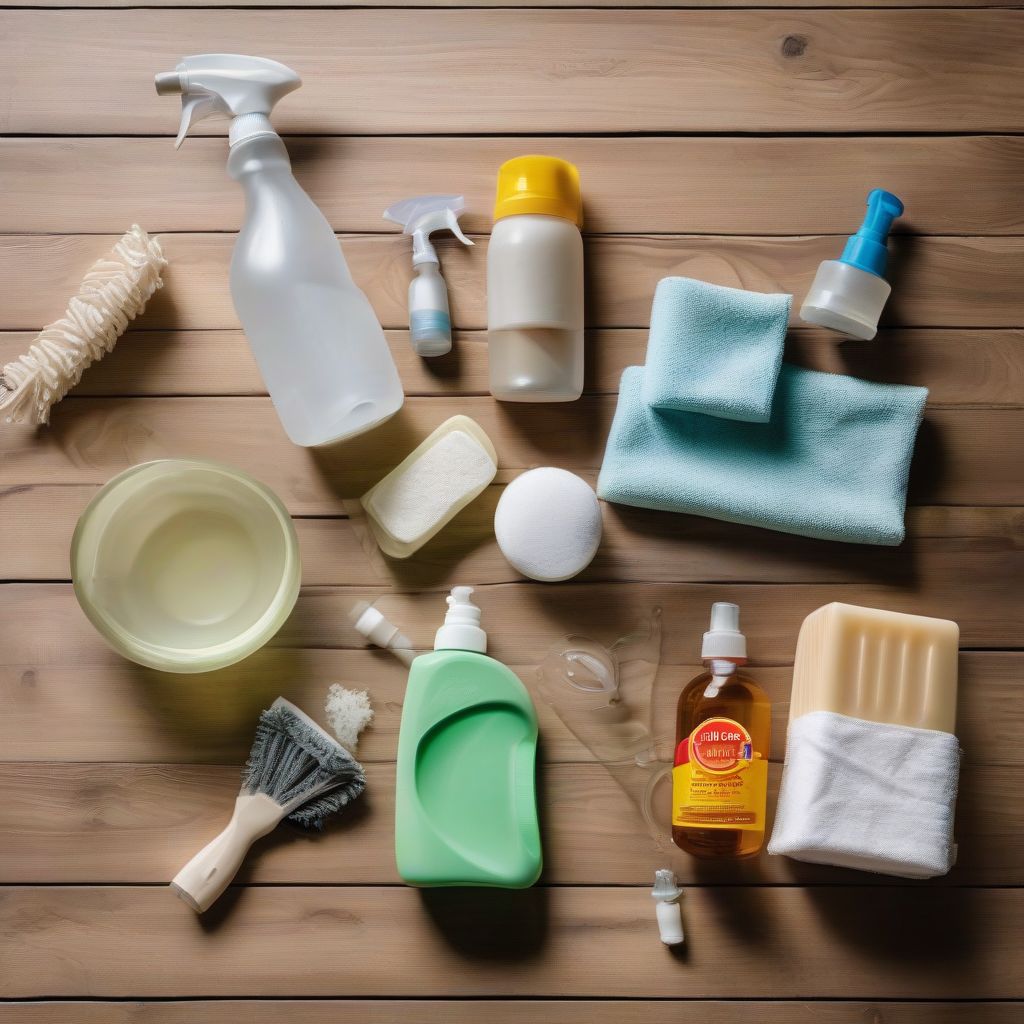Imagine a world where your cleaning routine is not only sparkling clean but also kind to the planet. It’s easier than you think to swap out harsh chemicals and wasteful products for eco-friendly alternatives that are just as effective. As a nutritionist and meal-prep coach, I’m passionate about health, and that includes the health of our planet. That’s why I’m excited to share simple swaps you can make for a greener home and a healthier you.
Why Make the Switch to Eco-Friendly Products?
Traditional cleaning products often contain harsh chemicals that can impact our health and the environment. Switching to eco-friendly alternatives offers a breath of fresh air, literally! Here’s why it matters:
- Improved Indoor Air Quality: Say goodbye to harsh fumes that can irritate your lungs and trigger allergies. Eco-friendly products use natural ingredients that are gentler on your respiratory system.
- Protecting Our Waterways: Conventional cleaning products can end up in our waterways, harming aquatic life and polluting our water sources. Eco-friendly options are biodegradable and break down safely, minimizing their impact on the environment.
- Reducing Plastic Waste: Many conventional cleaning products come in single-use plastic bottles. Opting for eco-friendly alternatives often packaged in reusable or biodegradable materials helps minimize plastic waste.
- Supporting Sustainable Practices: Choosing eco-friendly products supports companies committed to sustainable sourcing, ethical manufacturing, and reducing their carbon footprint.
Easy Eco-Friendly Swaps for Every Room in Your Home
Ready to make your home a greener haven? Here’s a room-by-room guide to eco-friendly alternatives for common household products:
Kitchen
- All-Purpose Cleaner: Ditch the harsh chemicals and opt for a DIY cleaner using equal parts white vinegar and water. Add a few drops of essential oil like lemon or tea tree for a fresh scent.
- Dish Soap: Look for plant-based dish soaps that are free from sulfates, phosphates, and artificial fragrances. These are effective at cutting grease while being gentle on your hands and the environment.
- Dishwasher Detergent: Switch to dishwasher tabs or powders that are free from chlorine bleach and phosphates.
- Sponges and Scrubbers: Choose natural options like cellulose sponges, coconut fiber scrubbers, or brushes with wooden handles.
 Eco-Friendly Kitchen Cleaning
Eco-Friendly Kitchen Cleaning
Bathroom
- Toilet Bowl Cleaner: Sprinkle baking soda into the toilet bowl, followed by a cup of vinegar. Let it fizz for 15 minutes before scrubbing and flushing.
- Shower Cleaner: Mix equal parts white vinegar and water in a spray bottle. Spray on shower surfaces and let sit for a few minutes before wiping clean.
- Hand Soap: Opt for natural hand soaps that are free from triclosan and artificial fragrances. Look for options with moisturizing ingredients like aloe vera or shea butter.
- Reusable Toilet Paper: Consider making the switch to reusable toilet paper made from bamboo or organic cotton. These options are gentle, hygienic, and significantly reduce paper waste.
Laundry Room
- Laundry Detergent: Choose plant-based laundry detergents that are free from synthetic fragrances, dyes, and optical brighteners.
- Dryer Sheets: Say goodbye to dryer sheets coated with chemicals and opt for wool dryer balls. They help to soften clothes naturally and reduce drying time.
- Stain Remover: Create a paste using baking soda and water. Apply to the stain and let it sit for a few minutes before laundering as usual.
General Cleaning
- Microfiber Cloths: Invest in a set of microfiber cloths that can be washed and reused multiple times. They effectively trap dust and dirt without the need for paper towels.
- Floor Cleaner: For a streak-free shine, mix a gallon of warm water with 1/2 cup white vinegar. Add a few drops of your favorite essential oil for a fresh scent.
- Glass Cleaner: Combine equal parts water and white vinegar in a spray bottle. Add a tablespoon of lemon juice for extra cleaning power.
 Eco-Friendly Cleaning Supplies
Eco-Friendly Cleaning Supplies
Tips for Making Eco-Friendly Choices
- Read Labels Carefully: Look for products that are labeled as biodegradable, non-toxic, plant-based, or cruelty-free.
- Start Small: You don’t have to replace everything at once. Start by swapping out one or two products at a time.
- DIY When Possible: Many eco-friendly cleaning solutions can be easily made at home using simple ingredients like vinegar, baking soda, and essential oils.
- Choose Concentrated Formulas: Concentrated cleaning solutions often come in smaller packaging, reducing plastic waste and transportation emissions.
- Support Eco-Conscious Brands: Support companies that are transparent about their ingredients and committed to sustainable practices.
Making a Difference One Swap at a Time
Transitioning to eco-friendly alternatives may seem like a small step, but it’s a powerful way to make a big difference for your health and the planet. By choosing products that are gentler on our bodies and the environment, we’re creating a healthier and more sustainable future for ourselves and generations to come.
[amazon bestseller=”eco-friendly cleaning products”]
Conclusion
Swapping to eco-friendly alternatives for your household products is easier than you think! By incorporating these simple changes, you can create a healthier and more sustainable home for yourself and your loved ones. Remember, every small step contributes to a greener and brighter future for everyone.
What are some of your favorite eco-friendly swaps? Share your tips and join the conversation below!
